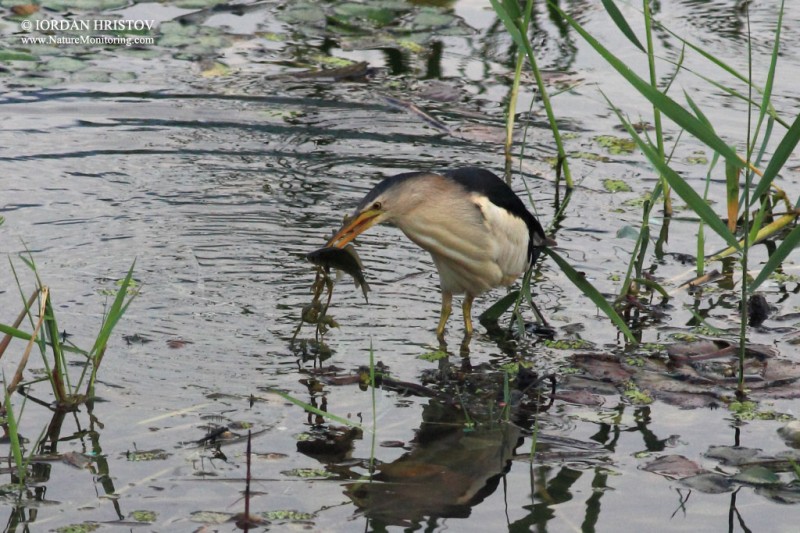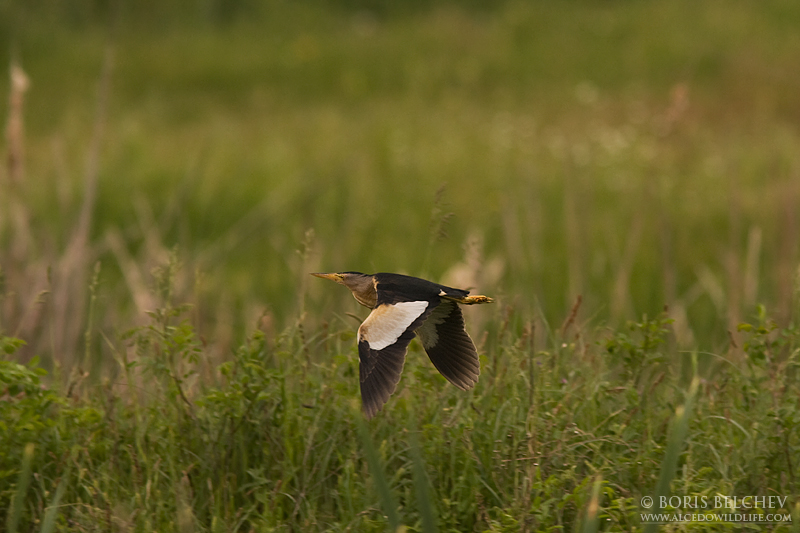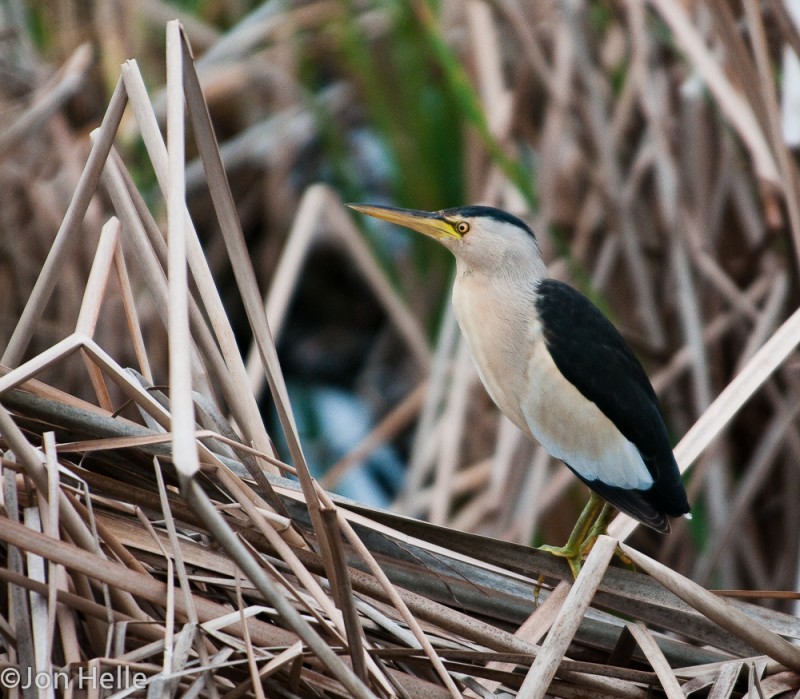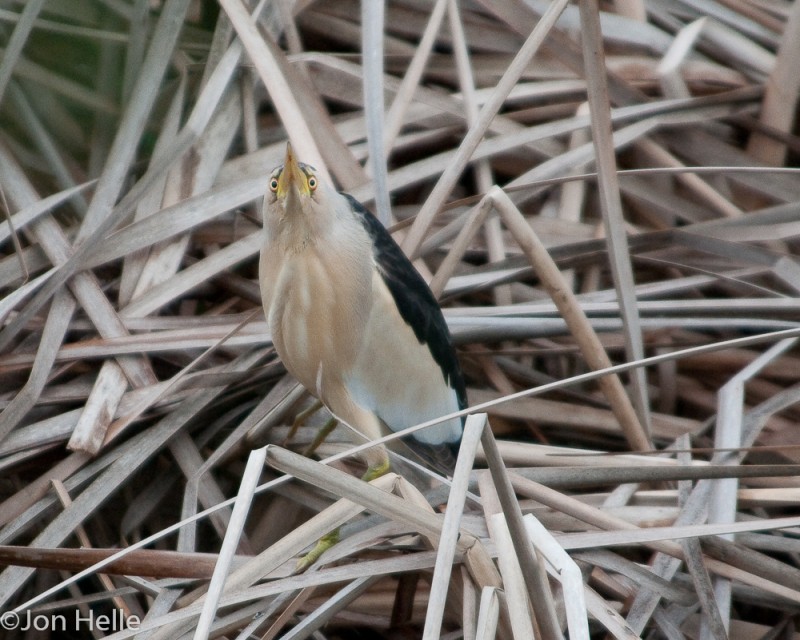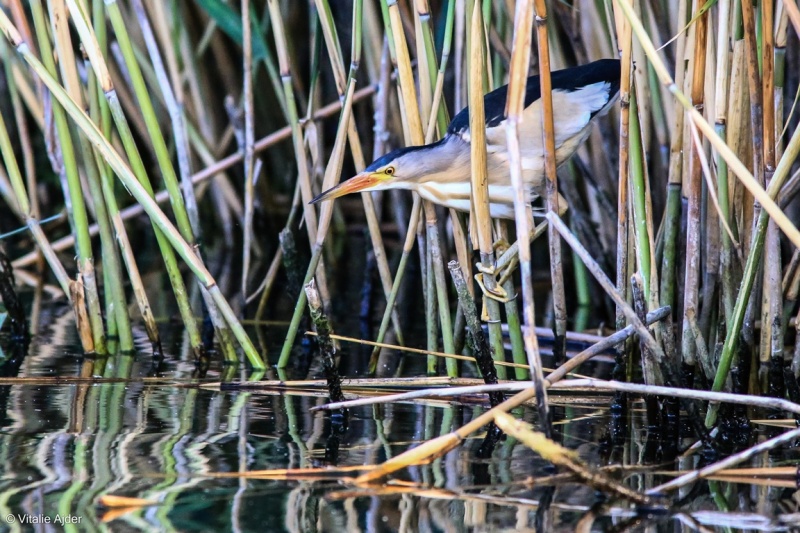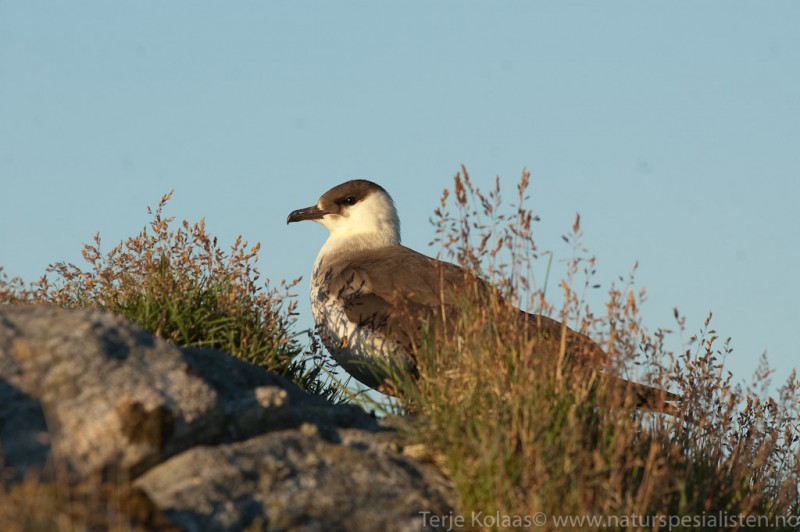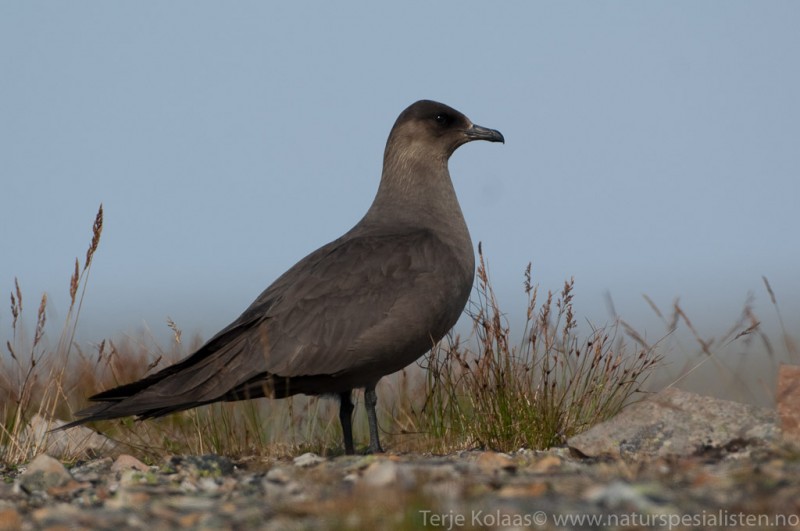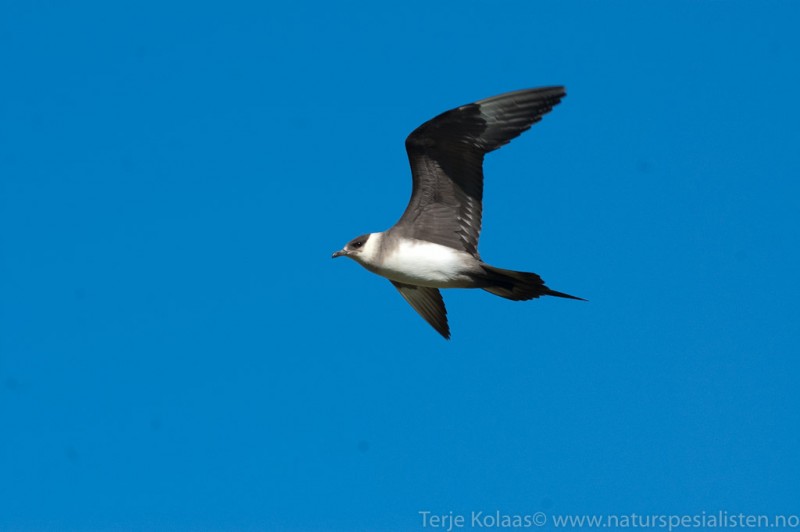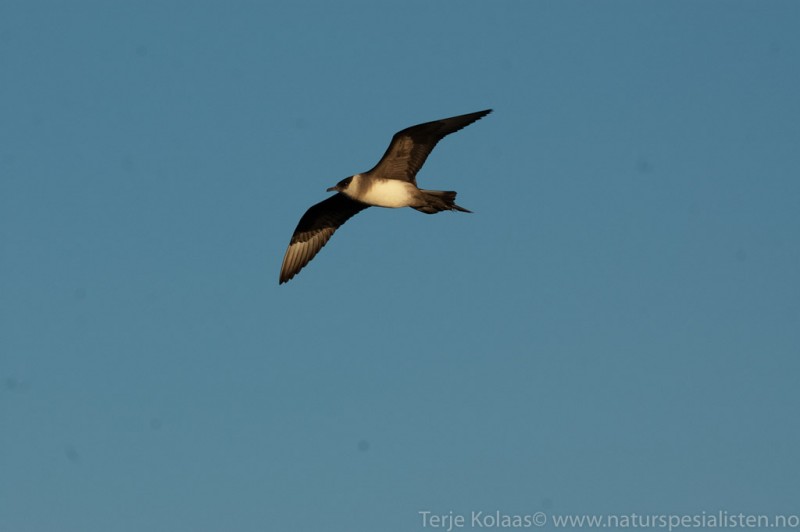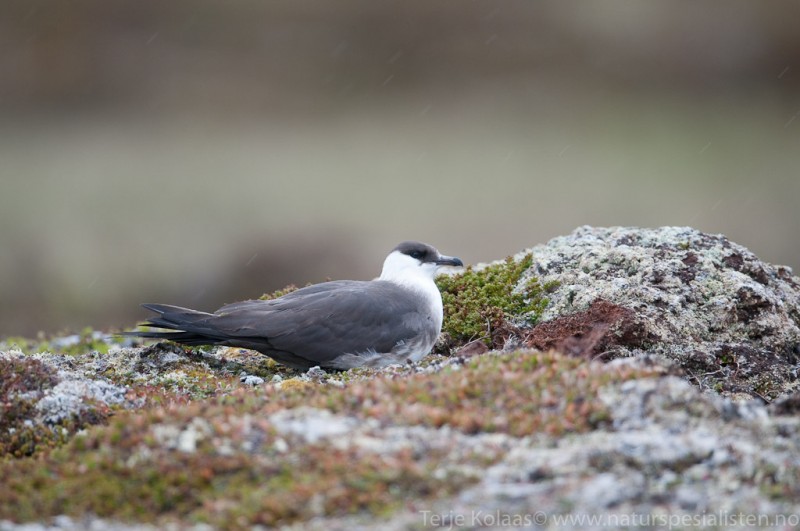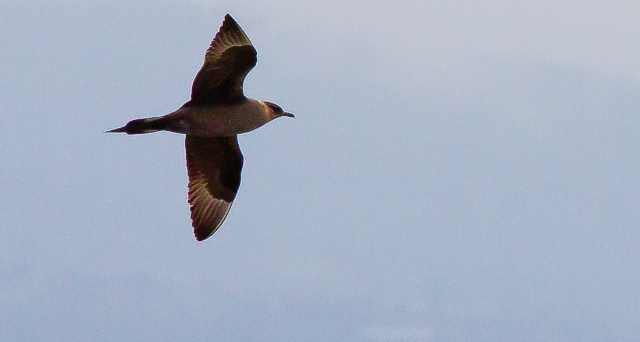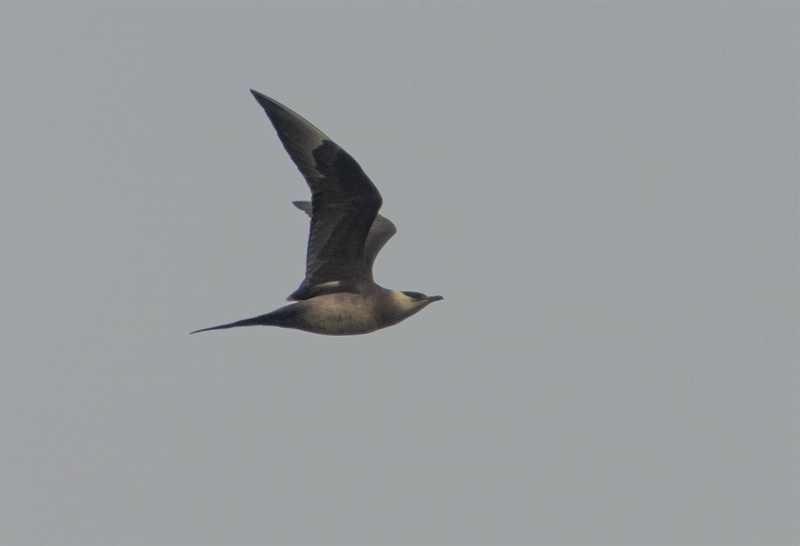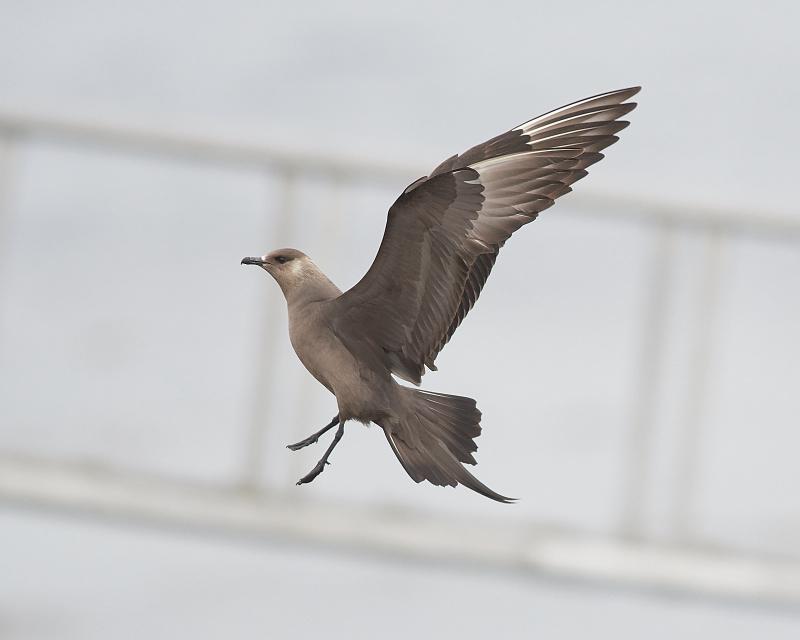Little Bittern (Ixobrychus minutus)
Parasitic Jaeger (Stercorarius parasiticus)
Usually recognizable by size alone. Distinctly smaller than any congener. Pale wing-panel formed by inner coverts is striking in all plumages, especially in flight. Male with contrasting black and white/buff plumage. Female with dark, but pale fringed back and streaked throat. Immature with streaked, bittern-like plumage, and wing-panel is brown-spotted. Skulky behaviour, and most active at dusk or after dark. Mostly seen in flight when crossing open water. Flight action rapid and clipping, and landing is preceded by short glide.
Sound:Mostly silent except in breeding season. Song is a series of short, deep, frog-like "gorrk", repeated every 2 seconds. Tone is muffled and hollow, but far-carrying. Flight-call a sharp "ki-ke-ke" or a nasal "ke".
Song:
Distribution:
Wikipedia: map (se also Xeno-canto below)
Ecology:Birdlife ecology
Links:
Observation.org Latest observations
Image search Flickr NB! May give other species
CCSound recording:Creative Commons,www.xeno-canto.org,Jarek Matusiak,http://creativecommons.org/licenses/by-nc-sa/4.0/
Dark, pale and intermediate morphs. Pale birds more common in northern parts of species range, darker morphs more common further south. Elongated middle tail feathers (projection comprising about half the total tail length), but not as long as in adult Long-tailed skua. White patches at base of primaries, both on upper and underside of wings. Dark morph chocolate brown with darker hood. Pale morph with white throat and belly and incomplete breast band. Relatively marked transition from pale belly to dark vent (as opposed to Long-tailed). Size close to Common Gull. Flight powerful, elegant and falcon-like. Juveniles with short but pointed middle tail-feathers. Confusion with other juvenile skuas very likely. Differs from Long-tailed in prominent white base of most primaries on upper side of wing (not just the first few feathers). Lacks the double white patch of Pomarine Skua's underwing, and shows less contrast between back and rump. Wings broader than Long-tailed but narrower than Pomarine. Approximately equal to distance from wing rear edge to tail-tip (projections excluded).
Sound:Mostly heard at breeding ground. Most characteristic call is a mewing, kittiwake-like "aeeeee-ah". First syllable drawn-out and rising in pitch, and followed by a deeper conclusive second syllable "ah". Lacks the introductory double accent of Kittiwakes ("kitti-wake").
Alarm call/flight call:
Distribution:
Wikipedia: map (se also Xeno-canto below)
Ecology:Birdlife ecology
Links:
Observation.org Latest observations
Image search Flickr NB! May give other species
CCSounds:Recorded by Fernand Deroussen,http://www.xeno-canto.org ,CC license

 English
English Albanian
Albanian
 Armenian
Armenian
 Bulgarian
Bulgarian
 Catalan
Catalan
 Croatian
Croatian
 Czech
Czech
 Danish
Danish
 Dutch
Dutch
 Finnish
Finnish
 French
French
 Georgian
Georgian
 German
German
 Greek
Greek
 Hungarian
Hungarian
 Italian
Italian
 Latvian
Latvian
 Lithuanian
Lithuanian
 Macedonian
Macedonian
 Norwegian
Norwegian
 Polish
Polish
 Portuguese
Portuguese
 Romanian
Romanian
 Russian
Russian
 Sami : Lule sami
Sami : Lule sami
 Sami : North sami
Sami : North sami
 Sami : South sami
Sami : South sami
 Scientific names
Scientific names
 Serbian
Serbian
 Spanish
Spanish
 Swedish
Swedish
 Ukrainian
Ukrainian


